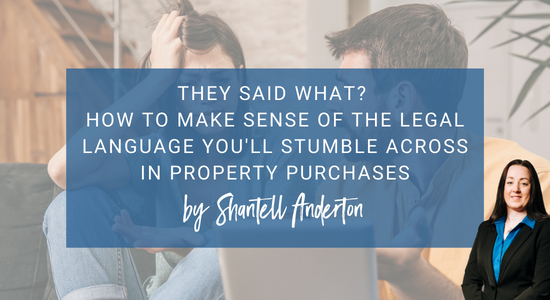At Merrifield’s, we spend every day discussing real estate. Listings, contracts, financing and conveyancing – and the set conditions that go with them – are part of our normal, everyday office talk.
But for most first homebuyers they are new. And maybe even a bit intimidating. Perhaps you are now considering selling your first home, and even though you’ve looked at these contracts before, it feels different on the selling side. It could be your third or fourth time engaging with a real estate agent, and maybe now you feel you can’t ask what the terms mean without sounding silly.
If any of these describe you, or you are simply curious about the lingo, here are some of the commonly used terms and how they might apply, to help you no matter where you are in your real estate journey!
Listing Authority: This is also known as the Selling Agency Agreement, and is the agreement between the you and the Real Estate Agency you have chosen. It outlines the details about the listing (and hopefully sale!) of your property. Things such as the listing price, fee for commission, and the period of the agreement are all included in this paperwork.
Offer and Acceptance: Might sound obvious, but these are steps on the journey to transfer home ownership. Together they form the legal Contract of Sale. This seems simple, but they include many components and there can be some ‘back and forth’ on these steps. A good agent will make sure you are involved, and understand every part of this process.
Vendor: Another name for the person, or organisation that is selling the property. It is not that common, but you will sometimes see that it is a Super fund, Government entity, or Enduring Power of Attorney selling a property. Don’t let that worry you, the contract still works the same.
Buyer: This is the person making an offer to purchase the property. If more than one person is buying, they need to decide if they will be purchasing as Joint Tenants or Tenants in Common.
Joint Tenants means that you are equal co-owners of the property and is commonly used among married or partnered couples. As joint tenants, if one owner dies, the other owner automatically acquires their share of the property.
Tenants in Common allows you to specify each share of the property between the owners, and you can sell or transfer your share as you wish. For example, you could have a 75% share, and your father as the other owner has a 25% share of the property.
Property Chattels and Fixtures: These are the items that will remain at the property after it has sold and settled. Chattels is the term to describe items that are not permanent fixtures, as they could be moved. They are usually large items held in place by their own weight. The most common chattel that we include in a contract of sale is a dishwasher.
Fixtures and fittings are more permanent things like carpet and floor coverings, curtains, blinds and window treatments, light fittings and fixtures, TV aerials just to name a few. If you are selling a property and have any particular items you don’t want to leave behind, make sure to discuss with your Sales Representative to ensure it isn’t included within the Chattels and Fixtures!
Special Conditions and Annexures: If you think of an annexure as an attachment to a document it feels more simple. When writing a contract, annexures are included in the Special Conditions to form part of the contract. This means these extra documents are a legally binding part of the contract.
An annexure that is commonly used is Annexure A, which covers things such as ensuring the Buyer has received a copy of the Certificate of Title, items included in the working order warranty, items that are excluded from the sale, ensuring that the property is compliant with electrical requirements, and many other items.
Finance: Finance means that you are borrowing money to be able to purchase the property. Some options for obtaining finance are a mortgage broker, individual lenders, your bank, and some Government agencies. You will need to nominate a deadline for the finance to be due, usually 30 days from the contract being accepted, and it is helpful if you can specify how much you will be borrowing, and who will be providing the loan.
Conveyancer: A conveyancer is another term for a settlement agent. A settlement agent is a trained professional who assists buyers and sellers in the process of transferring the ownership of land when a property is bought or sold. Settlement date, or the term ‘at settlement’ is simply the date of this legal transfer. Having a trusted settlement agent can be a huge help and remove a lot of stress when buying or selling a property. We work closely with your chosen settlement agent to ensure that all conditions of the sale are met, and that settlement will occur on time and as planned.
These are the main terms I had to learn quickly when I started in real estate. There are many more terms involved in all aspects of real estate, but I hope that these ones have helped you understand some of the language. I hope this will give you a little more confidence for negotiating your next real estate transaction!
By Shantell Anderton – Senior Sales Administrator


